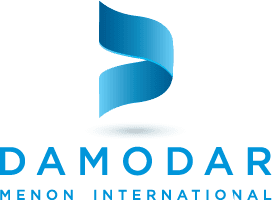Polyester stands as one of the pillars in the realm of synthetic fabrics, boasting widespread utilization across diverse industries. While it undergoes production processes similar to nylon, its disparities in properties and applications set them distinctly apart. In this article, we delve into the distinctive attributes of polyester yarn manufacturers in India. Additionally, we explore textile marketplaces where a B2B polyester fabric supplier in India can effectively market and sell their products.
What is Polyester, and How is it Made?
Polyester, a cornerstone of synthetic fabric production, undergoes a diverse manufacturing process dependent on its specific type. Ethylene Polyester, the most prevalent variant, is derived from ethylene—a by-product of petroleum. Alternatively, ethylene can be sourced from various other origins. Through chemical interactions, ethylene polymerizes with other substances to form PET fiber, a robust and stable fibrous material.
Aside from Ethylene Polyester, there are Plant-Based Polyester and PCDT Polyester varieties. The production of Ethylene Polyester mirrors that of Nylon, where ethylene glycol reacts with dimethyl terephthalate under intense heat. The resultant monomer is further combined with dimethyl terephthalate to yield the desired polymer.
The polymer is then extruded into elongated strips, subsequently cooled, dried, and fragmented into small chips. These chips are melted to produce a viscous substance akin to honey, which is then passed through a spinneret to create lengthy strands of fibers.
Textile Companies in India produce PET in four formats:
- Filament: Continuous fibers renowned for yielding soft and lustrous fabrics.
- Staple: Resembling cotton staple yarn, it is spun into yarn-like material.
- Tow: Similar to filaments, albeit with loosely arranged fibers.
- Fiberfill: Filaments tailored for bulky textile consumer goods such as sportswear, pillows, and stuffed toys’ stuffing.
The selection between filament, staple, tow, or fiberfill dictates the subsequent treatment process of polyester, which may involve cutting or chemical reactions to achieve the desired outcome. Typically, polyester fibers are spun into yarn before undergoing dyeing or other post-production enhancements across various applications.
China is the foremost exporter of polyester, closely trailed by India, the United States, Indonesia, and Japan.
Properties of Polyester
Polyester fabrics exhibit diverse textures depending on the production process, although they lack the smooth luster characteristic of nylon. However, polyester surpasses other synthetics in versatility, enabling a broad range of fabric feels.
- Exceptionally strong and durable, with high elastic recovery.
- Resistant to wrinkles, maintains shape after washing, and requires no ironing.
- Limited hygroscopicity, prone to static electricity accumulation impacting appearance.
- Rapid drying post-wash with negligible impact on wet strength.
- Superior heat resistance among synthetic fabrics, albeit with a low melting point.
- Thermoplastic nature allows for easy pleating.
- Higher light fastness compared to natural fabrics.
- Exhibits acid resistance, mold resistance, and insect repellence akin to nylon.
- Typically,darker and coarser than nylon fabrics.
Polyester finds extensive use in electrical, food packaging, garment manufacturing, varnishing, and automotive industries.
Marketplaces Where Polyester Yarn Manufacturers in India Can Trade Worldwide
For woven and knitted manufacturers in India, offline and online marketplaces like Damodar Menon International and TEXchange Global serve as the cornerstones for exports and imports, providing a platform for textile companies in India to connect and trade across international markets. The advent of technology and the emergence of digital solutions, such as TEXauction and real-time communication via user dashboard is reshaping the ways fabric suppliers conduct their operations, providing exceptional opportunities and advantages.
Damodar Memon International is India’s largest and oldest textile trading company, internationally recognized for exceptional trading experience, international market knowledge, and association with the world’s leading B2B buyers and sellers. You can connect with our experts for a traditional textile buying and selling experience.
In contrast, TEXchange Global, a brainchild of Damodar Menon International, provides businesses with the tools and support needed to navigate the complexities of online selling successfully. From increasing online sales and closing deals faster through auctions toreaching a multitude of sellers in real time, the platformempowers businesses to thrive in an ever-evolving marketplace.
Where knitted fabric manufacturers in India heavily rely on exports, access to a wide consumer base is essential. TEXchange Global offers a solution to this challenge by providing an instant gateway to a global audience, allowing Indian companies to flourish and grow.
To register, visit www.texchangeglobal.com

